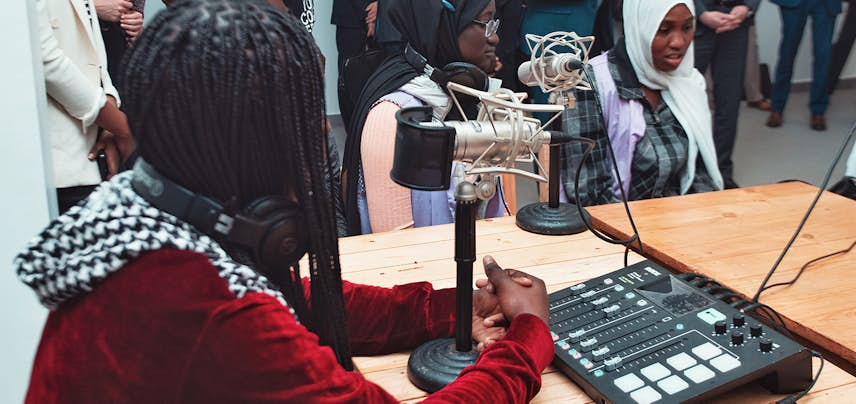Digital for Development (D4D)
The Digital for Development (D4D) concept seeks to promote the integration of digital tools by those working in development assistance and humanitarian action, whether in regard, for example, to basic social services, major innovative development projects or as a tool for the formalisation and monitoring of development policies. The Directorate for Development Cooperation and Humanitarian Affairs thus aims to support partner countries in their inclusive, green, human-centric and trustworthy digital transformation, to contribute to their sustainable development. To that end, the Luxembourg Development Cooperation has continued its commitment to further mobilise innovative partnerships, approaches and instruments in areas where Luxembourg has expertise at national level, particularly in the sector of digital financial services, ICT, telecommunications and cybersecurity.
The Directorate for Development Cooperation and Humanitarian Affairs, together with LuxDev, implements a number of projects in the fields of e‑education, e‑government, e‑agriculture and e‑health. Those areas correspond to the Luxembourg Development Cooperation main areas of intervention in the D4D sector. The SATMED project, led by SES and the Luxembourg Development Cooperation, is an example of how Luxembourg expertise can be used in developing countries: SATMED is an open telemedicine platform. Serving non-governmental organisations, hospitals, universities of medicine and other healthcare providers active in resource-poor regions, it provides free online health services. Its tools can be used to support projects in areas such as e‑care, e‑learning, e‑surveillance, e‑health management and e‑health financing.
In 2022, the Luxembourg Development Cooperation continued its commitment to the European Commission’s Digital for Development (D4D) Hub network, of which it has been a founding member since it was launched in December 2020. The D4D Hub aligns the European Union’s (EU) digital initiatives in order to increase their impact. This strategic multi-stakeholder platform promotes new international partnerships in the field of digital transformation between the EU and partner countries, particularly in Africa. The shared aim is a human-centric approach to digital transformation: facilitating multi-stakeholder partnerships, sharing digital expertise and encouraging investments from various European and global partners. In this context, the Luxembourg Development Cooperation is actively contributing to activities within the Africa branch as well as to the cyberspace working group, which Luxembourg co-chairs together with the European Commission.
In this context, Luxembourg has also continued its commitment within the African Union — European Union (AU-EU) D4D Hub. Implemented by five European development agencies, including LuxDev, and with EUR 8 million under European funding, this project aims to help bridge the digital divide, including the gender divide, and to use digital innovations for sustainable and inclusive development in Africa. The AU-EU D4D Hub also benefits the Luxembourg Development Cooperation partner countries, in
particular Niger, thus constituting an excellent example of how Luxembourg can benefit from the European or international network in the framework of its activities.
Together with its national partners such as the Luxembourg House of Cybersecurity (LHC), Luxembourg continued its commitment in 2022 to the Global Forum on Cyber Expertise (GFCE), which it joined in 2021. The purpose of this multi-stakeholder platform is to build capacity and expertise in cybersecurity. The Forum has more than 115 members and partners, including governments, international organisations and other civil society and private-sector operators, as well as the academic community. Its aim is to strengthen global cybersecurity capabilities through knowledge-sharing, including through working groups, a cyber knowledge portal and its function as an information exchange centre, as well as through practical initiatives. The GFCE aims to be a pragmatic, action-oriented and flexible platform for international collaboration.
The Luxembourg Development Cooperation’s D4D projects focus primarily on the modernisation of public administration, digital financial services, telecommunications, telemedicine and cybersecurity. With regard to cybersecurity, the opening of a delegation for cyberspace by the International Committee of the Red Cross (ICRC) in Luxembourg in November 2022 is a significant step. Efforts to implement these areas in a cross-cutting manner in bilateral programmes will continue beyond 2022.
